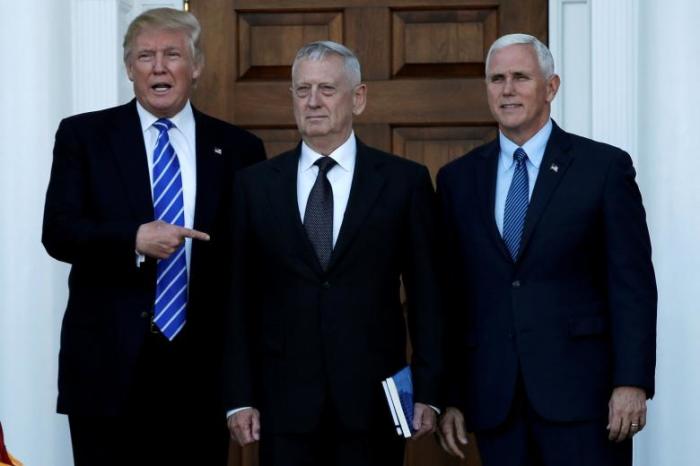Trump Backs Waterboarding, Considering 'Secret Prisons;' Anti-Torture Minister 'Disturbed' at Move

The National Religious Campaign Against Torture has called news that President Donald Trump is considering bringing back waterboarding and "black site" prisons for terror threats "quite disturbing," arguing that the U.S. should not engage in practices it would not want its own citizens subjected to.
"It is quite disturbing that he would explore this," Rev. Ron Stief, the executive director of NRCAT, told The Christian Post in a phone interview on Wednesday.
The Washington Post reported that a draft document titled "Detention and Interrogation of Enemy Combatants" is being floated around by the Trump administration, seeking to review whether prisons outside the U.S. should be reopened.
The administration's proposal suggests that the military detention center at Guantanamo Bay, Cuba, could be used again to take in newly captured prisoners, and seeks to evaluate how the CIA interrogates terror suspects.
WP clarified, however, that on Wednesday White House press secretary Sean Spicer "cast doubt on the provenance of the draft document," by stating that it is not a White House document.
The news agency explained that it obtained the document "by a person who said it had been circulated among agencies in Washington for comment," and that the immediate feedback "helped convince the White House counsel that the document needed wider distribution and review before being finalized."
Trump said separately in an interview with ABC News on Wednesday that he "absolutely" believes that waterboarding, which simulates drowning, is an effective means by which to gain critical information from prisoners.
The U.S. president argued that in the face of what the Islamic State terror group is doing to people in Iraq, Syria, and the surrounding region, the U.S. should not be held back when it comes to waterboarding.
"When they're shooting — when they're chopping off the heads of our people and other people, when they're chopping off the heads of people because they happen to be a Christian in the Middle East, when ISIS is doing things that nobody has ever heard of since Medieval times, would I feel strongly about waterboarding?" Trump said in the interview.
"As far as I'm concerned we have to fight fire with fire."
Stief, who is also an ordained minister in the United Church of Christ, told CP that General James Mattis, the U.S. Secretary of Defense, has said himself that torture doesn't work, and questioned whether Trump wouldn't be willing to listen to his top advisers on the subject.
"The thing that bothers me the most — will Donald Trump listen to some of his key cabinet members, like General Mattis, or will he just go on and do stuff like this that makes it look like he doesn't care what the military thinks of waterboarding," Stief asked.
Trump admitted in the ABC interview that Mattis "is not a believer in torture," and while he suggested he is going to listen to what his Secretary of Defense says, he revealed that he has also spoken with other people "at the highest level of intelligence," though did not say who.
"And I asked them the question, 'Does it work? Does torture work?' And the answer was, 'Yes, absolutely,'" the president said.
Stief, who recently wrote in an op-ed for CP that torture is a "denial of Jesus," also took aim at Trump's exploration of reopening secret prisons.
"I feel that it's immoral to hold people in secret prisons outside of the supervision of international agencies, like the Red Cross and others who are here to protect everybody, including people in the United States," he said.
"We don't want our people being put overseas in secret prisons."
As for Trump's comments that America should "fight fire with fire," one paragraph from Stief's CP op-ed, written before Trump's comment, responds to that argument:
"Christians in particular should understand best that God never asks us to respond to evil and darkness with more of the same. Jesus' example and teachings that compelled so many Christians to speak out against torture do not come from a place of weakness, but from the greatest strength."




























